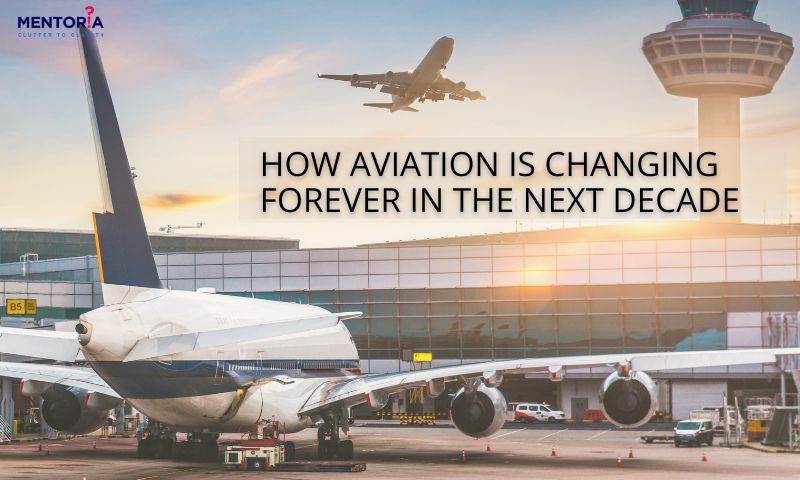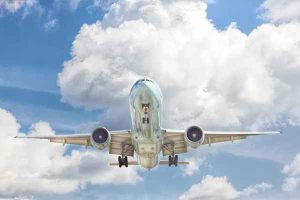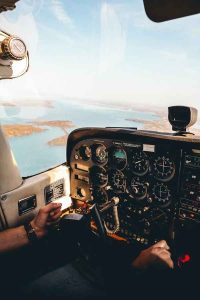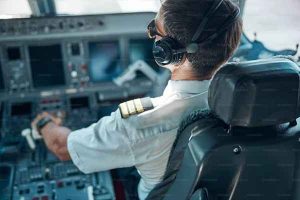How Aviation Is Changing Forever In The Next Decade

Let’s take a sneak peak into the not-so-distant future of aviation. We’re going to talk about the era where sustainability, smart technologies, and personalised experiences redefine the way we soar through the skies. The next decade promises more than just flights from Point A to B; it’s a thrilling adventure into a world where airports become digital playgrounds, planes take off vertically, and your travel experience is as unique as you are. So, fasten your seatbelts, because we’re about to start on a skyward expedition filled with promise and innovation. Ready for takeoff?
How Is Aviation Going To Change Forever In The Next 10 Years?
The Green Revolution In The Skies
In aviation, sustainability isn’t a buzzword; it’s the cornerstone of the next decade. Sustainable Aviation Fuels (SAFs) are taking centre stage, offering an eco-friendly alternative to traditional jet fuels. Okay, check it out – there are these cool fuels made from stuff like plants and other renewable things. The goal? To make air travel way friendlier to our planet. Big airlines are jumping on board, promising to use these eco-friendly fuels in their flights. It’s like a big shift towards a greener future for flying.
But that’s not all – electric planes are hitting the scene, and they’re changing the game. These planes don’t just pollute less; they also make way less noise and fly more efficiently. It’s like a real-deal solution to the environmental issues that regular planes bring. Cool, right?
The green revolution extends beyond propulsion methods to encompass aircraft design. As we look to the future, sustainable skyways are not just an aspiration; they are a concrete commitment to ensuring the longevity of aviation while preserving the planet.
Hyper-Connected Travel Hubs
The future of aviation isn’t confined to the skies; it’s intricately linked with the digital world. Airports are evolving into hyper-connected travel hubs, leveraging the power of 5G technology. Think about airports being like super-smooth internet, always updating you on flights, bags, and cool stuff. In the next decade, airports are gonna be game-changers, giving passengers a whole new experience.
It’s not just about knowing flight info in real-time. You can get quick updates on gate changes, delays, and even tips on cool stuff around during layovers. For a passenger, it’s like having their own personalised airport genie, making their journey way cooler.
Furthermore, digital ecosystems within airports are poised to enhance efficiency. These innovations not only streamline travel but also reduce wait times and enhance overall airport experiences. As hyper-connected travel hubs become the norm, passengers can expect a seamless and tech-enhanced journey from check-in to touchdown.
Vertical Takeoff And Landing (VTOL) Aircraft
The future of aviation is about to redefine the concept of runways. Vertical Takeoff and Landing (VTOL) aircraft are making waves in urban mobility. Consider skipping the regular traffic grind and zipping around cities in small flying cars. Yep, that’s the idea behind these cool aircraft. Instead of sitting in traffic, picture hopping onto an air taxi that takes off straight up.
Big companies like Uber and Joby Aviation are working on making these flying cars real. Soon, you might see them whizzing above cities, making travel faster and more direct. And the best part? It helps tackle the big problem of crowded city streets. As the technology gets better, the sky above cities could become the new way to zip around quickly and easily!
Airports In The Skies: The Rise Of Aerial Mobility
Aerial mobility is not just a concept from science fiction; it’s on the brink of becoming a reality. The next decade holds the promise of turning the skies into highways, with flying cars and air taxis becoming integral to our daily lives. These aren’t whimsical visions but practical solutions to urban congestion and transportation challenges.
Flying cars, once relegated to the fields of imagination, are now undergoing serious development. Companies like Terrafugia and AeroMobil are at the forefront, creating prototypes that blend road and air capabilities seamlessly. These vehicles aim to provide a door-to-door experience, eliminating the need for separate transportation modes.
Air taxis, on the other hand, are set to become commonplace in urban landscapes. Electric-powered air taxis are being designed to shuttle passengers between predetermined locations, reducing travel time and bypassing traffic bottlenecks. As regulatory frameworks catch up with technological advancements, the rise of aerial mobility is poised to transform how we perceive and experience urban transportation.
Data-Driven Maintenance
Maintenance in the aviation sector is undergoing a digital transformation, and it’s all about being proactive. The advent of the Internet of Things (IoT) and predictive analytics is reshaping how aircraft are maintained. Okay, think about your plane texting you its health updates instead of waiting for a checkup. Cool, right? Well, thanks to tiny sensors in important plane parts, we now get real-time info on how everything’s doing – performance, wear and tear, you name it.
Now, here’s the nifty part: smart computer programmes look at all this data and predict when the plane needs a checkup. It’s like getting a heads-up before something goes wrong. This switch from waiting for problems to happen to fixing things before they get messy not only keeps flights safe but also makes air travel more efficient. Less waiting, more flying – that’s the deal!
The implications of data-driven maintenance extend beyond safety and efficiency. Airlines can now optimise their maintenance schedules, reducing costs associated with unscheduled maintenance and avoiding disruptions to flight schedules. As aviation embraces the era of data, maintenance practices are becoming smarter and more aligned with the goal of ensuring smooth and reliable operations.
Personalised Passenger Experience
The future of aviation isn’t just about getting from point A to point B; it’s about the journey itself. Personalised passenger experiences are taking centre stage, offering travellers a level of customisation that goes beyond the generic one-size-fits-all approach. Check this out: Airlines are stepping up their game to make your flights way more awesome! Now, it’s not just about getting from A to B; it’s about making your journey super unique and enjoyable.
They’re turning up the dial on in-flight entertainment, so you can pick the movies and music you love. Consider having your own playlist or choosing the perfect movie – it’s like bringing your favourites from home to the skies!
But wait, there’s more! Airlines are going all out to make your entire trip special. They’re planning travel schedules based on what you like and serving up meals that match your diet. It’s like they’re making each journey just for you! This shift toward personalisation is all about building a real connection between you and the airline. So get ready for a travel experience that’s all about you!
Regional Revival: Focus On Tier 2 And 3 Cities
Big cities used to rule the sky, but things are changing! Now, smaller cities (we call them Tier 2 and 3) are becoming super important in aviation. This shift isn’t just about helping the local areas; it’s like giving everyone a chance to fly high.
Places that didn’t get much attention before are turning into aviation hubs. It means folks in smaller cities can now easily connect to bigger networks, even for international flights. The airports in these cities are getting bigger and better, and airlines are adding more direct flights, so people don’t have to trek to major hubs just to catch a plane. It’s like bringing air travel closer to everyone!
Young Aviators: Charting A Course For Aspiring Minds
As the aviation sector expands, opportunities abound for young Indians eager to take flight in this dynamic industry. Here’s a blueprint for those aspiring to navigate the skies of a future-ready career.
STEM Focus
The foundation of any aviation career begins with a strong focus on science, technology, engineering, and mathematics (STEM). These subjects are the building blocks, providing the necessary knowledge for innovations in aviation, ranging from AI and automation to aircraft design and fuel efficiency. A STEM-focused academic path becomes the runway to a successful aviation career.
Aviation-Specific Degrees
Specialisation is the key. Consider pursuing specialised degrees in aeronautical engineering, aviation management, air traffic control, or drone technology. These programmes not only provide in-depth knowledge but also equip aspiring aviators with practical skills tailored to the industry’s demands. It’s not just about learning; it’s about gaining expertise in areas directly relevant to aviation.
Seek Internship Opportunities
Theoretical knowledge is essential, but practical experience is invaluable. Seek internship opportunities with airlines, airports, technology firms, or drone startups. Internships provide hands-on experience, offering insights into the real-world dynamics of the aviation sector. It’s more than just an internship; it’s a window into your future career.
Explore Specialised Institutions
Consider institutions that focus specifically on aviation and technology. Institutions like the Indian Institute of Technology (IIT) Kanpur, Hindustan Institute of Technology and Science (HITS), and IIT Guwahati with a centre for drone technology offer programmes tailored to the aviation industry’s needs. Think of these institutions as gateways to specialised knowledge and hands-on experience.
Tailored Programmes
Look for specialised programmes that align with emerging technologies. For instance, programmes like B.Tech Autonomous Drone Technology at Vel Tech Chennai offer a direct route into the world of drone technology. These tailored programmes are not just educational journeys; they are direct paths to careers in fields that are shaping the future of aviation.
Aspiring young aviators, your journey begins with a strong educational foundation, specialised knowledge, continuous learning, and practical experience. The skies are vast, and the opportunities are limitless for those ready to chart their course in the dynamic and evolving world of aviation.
A Sky Full Of Promise
As we navigate the skies of the next decade, it’s evident that the future of aviation isn’t confined to a singular narrative. It’s a multifaceted journey marked by sustainability, connectivity, technological innovation, and inclusivity. The green revolution, hyper-connected travel hubs, VTOL aircraft, aerial mobility, data-driven maintenance, personalised passenger experiences, and a focus on Tier 2 and 3 cities collectively shape a future that goes beyond conventional expectations.
Curious about how these exciting changes in the aviation sector could align with your career aspirations? Explore Mentoria’s career guidance programme, where our expert mentors can provide personalised insights and advice. Mentoria’s career guidance programme enables you to choose your perfect fit from 3 streams, 850+ courses, and 12,000+ careers, and discover what will bring out the best in you.









